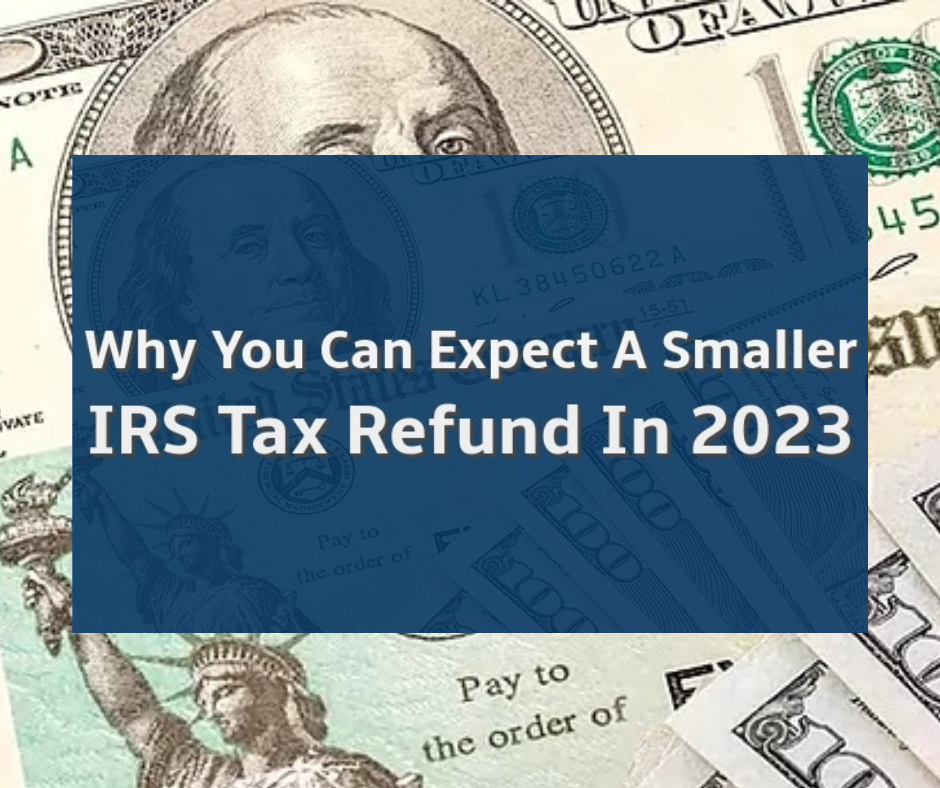Changes to tax rules for charitable contributions and the end of pandemic-related stimulus and credits could mean less money for you.

It’s highly likely your tax refund will be smaller in 2023, the Internal Revenue Service is warning, as pandemic-era programs continue to expire.
Some tax credits that boosted refund bottom lines since 2020 are returning to 2019 levels. This means affected taxpayers will likely receive a “significantly smaller refund” compared to the previous tax years. The changes mostly involve the Child Tax Credit, Earned Income Tax Credit, and Child and Dependent Care Credit, as well as deductions allowed for charitable contributions.
Taxpayers will not receive an additional stimulus payment with a 2023 tax refund because there were no Economic Impact Payments for 2022. In addition, taxpayers who don’t itemize and take the standard deduction, won’t be able to deduct their charitable contributions.
The average tax refund amount over the past three years
- 2020 (for the 2019 tax filing year) – Average tax refund was $2,550
- 2021 (for the 2020 tax filing year) – Average tax refund was $2,791
- 2022 (for the 2021 tax filing year) – Average tax refund was $3,176
Many tax refunds may not be as large as they were last year due to changes in tax rules and the end of the stimulus package.
Here are the changes:
- Child Tax Credit – Taxpayers who received $3,600 in 2021 as part of the expanded Child Tax Credit will see a big cut to the pre-pandemic level of $2,000 for the 2022 tax year.
- Earned Income Tax Credit – During the pandemic, eligible taxpayers without children were eligible for $1,500. This will be cut to $500 in 2022.
- Child and Dependent Care Credit – This credit will see a significant reduction from $8,000 in 2021 to $2,100 in 2022.
- No above-the-line charitable deductions – During COVID, taxpayers could take up to a $600 charitable donation tax deduction on their returns. However, in 2022, those who take a standard deduction may not take an above-the-line deduction for charitable donations.

